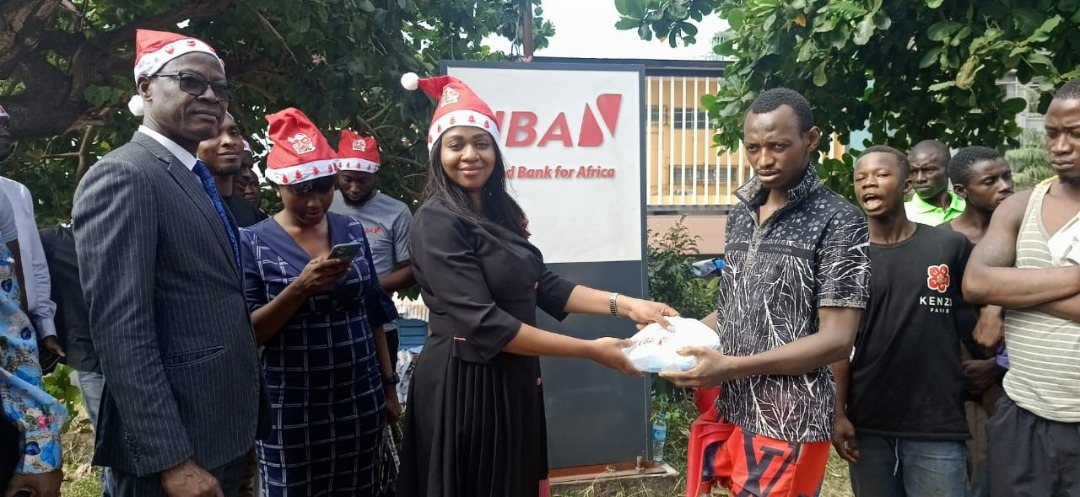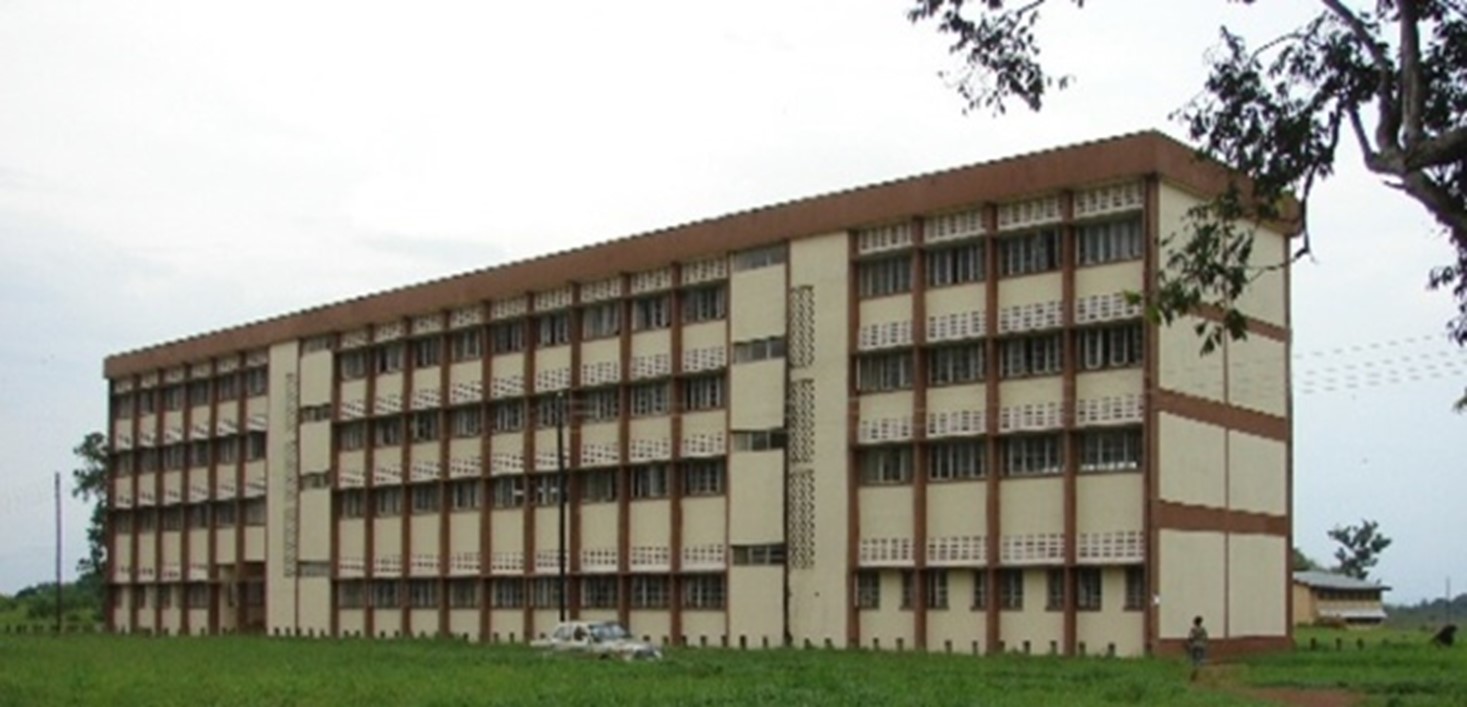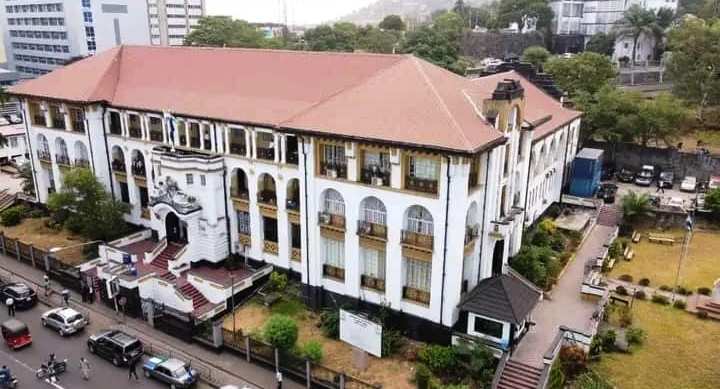On Monday 23 August 2021 Sierra Leoneans woke up to a statement or declaration over SLBC FM 100 and Radio Democracy, FM 98.1 radio stations by the public relations officer of the Sierra Leone Bakers Association that the price for a loaf of bread would be increased the following day. And indeed the increase in bread price has come to pass, even though the Director of Trade in the Ministry of Trade and Industry has come out loud and clear in the radio to refute the statement of the Bakers Association PRO, saying the association’s president had dissociated himself from the statement of the PRO, hence the price for a loaf of bread should and must not be increased on the premise that there had been no increase in the price for a bag of flour, which is the main constituent of the bread product.
The Director of Trade, Mr Konjor, who countered over the radio the statement of the bakers association PRO, said the factory that manufactures and produces flour in the country – Sierra Leone Flour Mill – had not increased the price of flour “at all” and that the price of a bag of flour remained the same at Le280, 000. Therefore, he said, “there is no need for any price increase” of bread, although he shifted the cause of action of the bakers association to the recent spate of fuel price increases the nation has been grappling with. The claim of the trade ministry has been enhanced or buttressed by the Sales and Marketing Manager of the Sierra Leone Flour Mill, Sheikh Lama Jalloh, who stated on SLBC Morning Coffee program on Thursday 26 August this year that his factory, which manufactures, sells and distributes flour to retail shops or distribution points across the country, had not increased the price of flour except for an infinitesimal addition of Le5,000 to the price of a bag of flour making it Le285,000 a bag “just to cover transportation cost”.
Even after the clarifications from both the trade ministry and the flour mill, backed up with an order by the trade ministry to reverse the price of bread to its former price, the price for a loaf of bread still remains as declared by the PRO of the bakers association.
Almost a week after the increase in the price of bread as declared by the PRO of the bakers association, no reversal of the price of bread as ordered by the trade ministry has taken place. While the new prices declared by the bakers association remain unchanged, the people of Sierra Leone are finding it very difficult to buy a loaf of bread or even eat enough bread to sustain their lives. A week running, families and households in the country are starving for lack of bread as they are unable to buy bread or enough of it to eat since the price for a loaf of bread has shot up into the stratosphere far beyond the daily earnings or incomes of the masses of people in the country.
Who rules therefore in the bread trade sector in Sierra Leone? Is it the Ministry of Trade and Industry or the Sierra Leone Bakers Association? The answers to these questions could be unearthed from what obtains on the ground presently.
Many factors as we have come to learn could be responsible for this sudden or shocking price rise of bread – a very essential food item for the people of Sierra Leone.
To start with, the price of a bag of flour has actually increased from Le280, 000 to Le285, 000. There are also increases in the prices of sugar, butter, oil, yeast, and fuel products such as gasoline, petrol, kerosene and also wood, which are all essential items germane to the production or baking of bread. These factors seemed to have been less considered by the trade ministry or price regulatory bodies in the country when it comes to bread production.
Almost all the bread sellers, be they manufacturers or retail sellers, are raising the same issues of the escalation in prices of other essential items used to produce or bake bread in the country.
Another pivotal element gravely aggravating inflation and price rise in the country is the rapidly ascending exchange rate of the United States Dollar and other major international trading currencies to the Leones. Just within a month or two, the exchange rate of the dollar to the Leone has increased by about 12 per cent from roughly Le10, 000 to a dollar to presently Le11, 200 to a dollar. What a rapidity?! And what an effect this could have on prices of commodities, especially imported items! These commodity price increases are some of the spill-over effects on the price of bread in the country.
To bring sanity into the bread trade sector, the trade ministry and related agencies should actually sit together with the other stakeholders in the sector, such as the Sierra Leone Bakers Union, the Sierra Leone Bakers Association, the Sierra Leone Flour Mill and other relevant players to have a common understanding and look at the real causative factors of the rise in bread price in order to come out with a fair price for a loaf of bread in the country.
Also, the aspect of the exchange rate of the dollar and other major trading currencies to the Leone should be thoroughly looked into in concert with the Bank of Sierra Leone to manage things well. It must also be considered that the recent abrupt announcement of a change in the currency note or redenomination of the Leone has not really helped matters.
Furthermore, the government, guided by the trade, economic planning, and youth ministries, should start to think about creating more avenues for the production and selling of bread across the country. This can be done by investing veritable financial resources in the construction of bakeries, involving the country’s jobless youth in the business of baking, selling and distribution of bread across the country, just as substantial resources have been expended or invested in the creation of Car Wash Centres across Freetown.
Forum says economic management is a very hard work and extremely challenging and it is certainly not the precinct of brutes, but for those who could very well make ends meet; it’s lots of skills.
On Monday 23 August 2021 Sierra Leoneans woke up to a statement or declaration over SLBC FM 100 and Radio Democracy, FM 98.1 radio stations by the public relations officer of the Sierra Leone Bakers Association that the price for a loaf of bread would be increased the following day. And indeed the increase in bread price has come to pass, even though the Director of Trade in the Ministry of Trade and Industry has come out loud and clear in the radio to refute the statement of the Bakers Association PRO, saying the association’s president had dissociated himself from the statement of the PRO, hence the price for a loaf of bread should and must not be increased on the premise that there had been no increase in the price for a bag of flour, which is the main constituent of the bread product.
The Director of Trade, Mr Konjor, who countered over the radio the statement of the bakers association PRO, said the factory that manufactures and produces flour in the country – Sierra Leone Flour Mill – had not increased the price of flour “at all” and that the price of a bag of flour remained the same at Le280, 000. Therefore, he said, “there is no need for any price increase” of bread, although he shifted the cause of action of the bakers association to the recent spate of fuel price increases the nation has been grappling with. The claim of the trade ministry has been enhanced or buttressed by the Sales and Marketing Manager of the Sierra Leone Flour Mill, Sheikh Lama Jalloh, who stated on SLBC Morning Coffee program on Thursday 26 August this year that his factory, which manufactures, sells and distributes flour to retail shops or distribution points across the country, had not increased the price of flour except for an infinitesimal addition of Le5,000 to the price of a bag of flour making it Le285,000 a bag “just to cover transportation cost”.
Even after the clarifications from both the trade ministry and the flour mill, backed up with an order by the trade ministry to reverse the price of bread to its former price, the price for a loaf of bread still remains as declared by the PRO of the bakers association.
Almost a week after the increase in the price of bread as declared by the PRO of the bakers association, no reversal of the price of bread as ordered by the trade ministry has taken place. While the new prices declared by the bakers association remain unchanged, the people of Sierra Leone are finding it very difficult to buy a loaf of bread or even eat enough bread to sustain their lives. A week running, families and households in the country are starving for lack of bread as they are unable to buy bread or enough of it to eat since the price for a loaf of bread has shot up into the stratosphere far beyond the daily earnings or incomes of the masses of people in the country.
Who rules therefore in the bread trade sector in Sierra Leone? Is it the Ministry of Trade and Industry or the Sierra Leone Bakers Association? The answers to these questions could be unearthed from what obtains on the ground presently.
Many factors as we have come to learn could be responsible for this sudden or shocking price rise of bread – a very essential food item for the people of Sierra Leone.
To start with, the price of a bag of flour has actually increased from Le280, 000 to Le285, 000. There are also increases in the prices of sugar, butter, oil, yeast, and fuel products such as gasoline, petrol, kerosene and also wood, which are all essential items germane to the production or baking of bread. These factors seemed to have been less considered by the trade ministry or price regulatory bodies in the country when it comes to bread production.
Almost all the bread sellers, be they manufacturers or retail sellers, are raising the same issues of the escalation in prices of other essential items used to produce or bake bread in the country.
Another pivotal element gravely aggravating inflation and price rise in the country is the rapidly ascending exchange rate of the United States Dollar and other major international trading currencies to the Leones. Just within a month or two, the exchange rate of the dollar to the Leone has increased by about 12 per cent from roughly Le10, 000 to a dollar to presently Le11, 200 to a dollar. What a rapidity?! And what an effect this could have on prices of commodities, especially imported items! These commodity price increases are some of the spill-over effects on the price of bread in the country.
To bring sanity into the bread trade sector, the trade ministry and related agencies should actually sit together with the other stakeholders in the sector, such as the Sierra Leone Bakers Union, the Sierra Leone Bakers Association, the Sierra Leone Flour Mill and other relevant players to have a common understanding and look at the real causative factors of the rise in bread price in order to come out with a fair price for a loaf of bread in the country.
Also, the aspect of the exchange rate of the dollar and other major trading currencies to the Leone should be thoroughly looked into in concert with the Bank of Sierra Leone to manage things well. It must also be considered that the recent abrupt announcement of a change in the currency note or redenomination of the Leone has not really helped matters.
Furthermore, the government, guided by the trade, economic planning, and youth ministries, should start to think about creating more avenues for the production and selling of bread across the country. This can be done by investing veritable financial resources in the construction of bakeries, involving the country’s jobless youth in the business of baking, selling and distribution of bread across the country, just as substantial resources have been expended or invested in the creation of Car Wash Centres across Freetown.
Forum says economic management is a very hard work and extremely challenging and it is certainly not the precinct of brutes, but for those who could very well make ends meet; it’s lots of skills.



















